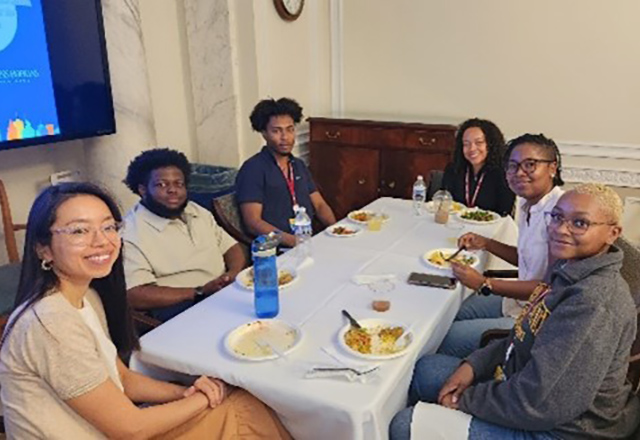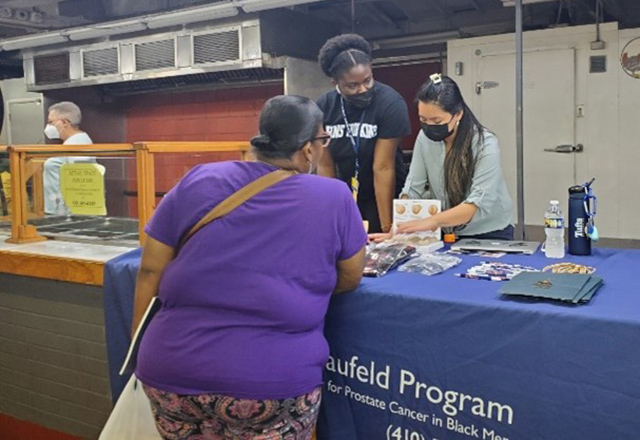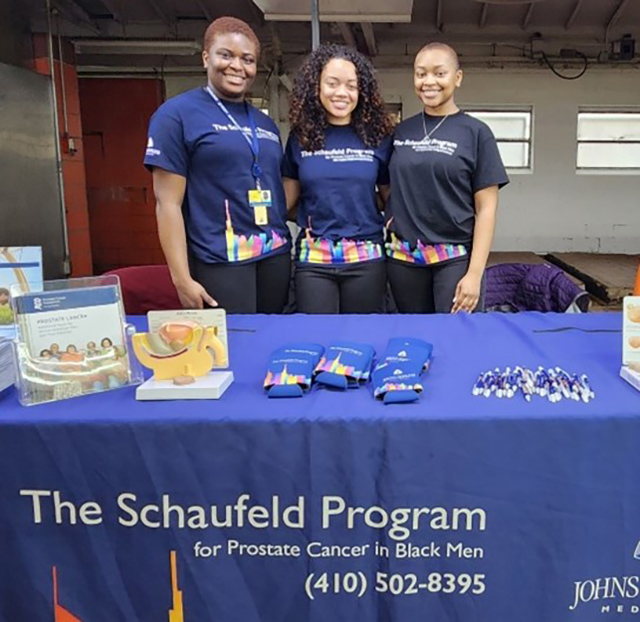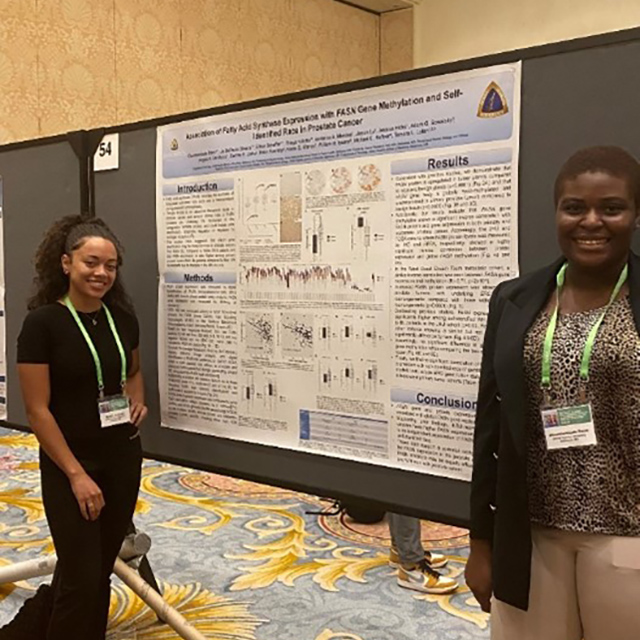Education

To effect lasting improvement in community health, we must close the long-standing chasm between the inner city residents and the historically biased medical system. This effort requires both (a) bringing medical services and people into the community, as discussed in the next section, and (b) ensuring that the medical system itself evolves to include professionals who thoroughly and accurately understand community members’ challenges, needs, and preferences. Our second program component focuses on the latter, which we will achieve through creating immersive educational experiences for a variety of learners.

As we prepare healthcare professionals and research scientists to more intentionally and effectively address prostate cancer, we integrate our educational efforts into the very community with which we hope to positively affect. We pursue future Johns Hopkins healthcare trainees to get to know disenfranchised and/or underserved people where they are, and promote a broadening of the healthcare workforce to better reflect, better understand, and better serve people of the community.

This program component engages learners at different stages, with activities designed to inspire and encourage them to pursue careers in the biomedical sciences – focusing on community initiatives and aggressive prostate cancer research. An up to 2 year-long experience for trainees to become immersed in research and community outreach will lay the foundation for future learners to carry on the Schaufeld Program mission in perpetuity. We also propose our scholars participate in annual scientific conferences dedicated to prostate cancer research and treatment. These high-caliber forums will help educate and build awareness among current physicians and scientists internationally. It will also serve as a platform for our researchers and students to present their work, gain feedback, and practice assuming a visible leadership role in the area of prostate cancer.
Educational Objectives

The educational component of The Schaufeld Program for Prostate Cancer in Black Men will seek to:
- Inspire pre-professional students to explore careers in the biomedical sciences, particularly those focused on Black communities’ needs.
- Motivate medical students and residents to enter careers of community service.
- Educate fellows and postdoctoral trainees in effective care for the Black community through on-site experience.

While imbedded within the larger context of overall health and healthcare awareness (primarily prevention), we hope to motivate learners at all levels to take a particular interest in prostate cancer – both the scientific and the human health needs posed by this disease as it disproportionately afflicts men within the Black community.
Post-Baccalaureate Schaufeld Scholars Program
-
The Schaufeld Program is recruiting post-baccalaureate students interested in pursuing 1-2 years of full time, laboratory- or public health-based research on prostate cancer. This position is optimal for students seeking a post-undergraduate research experience before pursuing a higher degree in medical school or graduate school. Students will choose a mentor from among the many faculty at Johns Hopkins studying prostate cancer and join their research team.
-
The ideal candidate is a current senior or recent college graduate with a record of successful completion of introductory biology and/or other science courses in college, and has a commitment to and record of inclusionary conduct in work, educational and social contexts; work in health disparities; and/or having a sincere desire to serve populations affected by societal inequities, including underrepresented groups. Members of underrepresented or educationally-disadvantaged groups are encouraged to apply.
-
If interested in applying, please email a cover letter and resume to:
Stephen Johnson, Program Coordinator
[email protected]600 North Wolfe St, Park building, 2nd floor
Baltimore, MD 21287
Office: (410) 502-8395
2023-2024 Schaufeld Program Scholars
Oluwademilade "Lade" Dairo
Born in Nigeria
Candidate for Master of Science in Biotechnology, Johns Hopkins University
Working in Dr. Tamara Lotan’s Laboratory

Jevon Layne
Born in Trinidad and Tobago
Undergraduate Degree: Biology and a minor in Chemistry from Howard University
Working in Dr. Clayton Yates’s lab

Oceane Nana
Born in Cameroon
Morgan State University Graduate in Biology with a minor in Chemistry
Working in Dr. Clayton Yates’s lab

Kennedy Monique Rains
Born in Fort Washington, Maryland
Undergraduate Degree: Biology and chemistry at Norfolk State University, Virginia
Working in Dr. Janielle Maynard's Laboratory

Shango Rich
Born in Baltimore
Undergraduate Degree: Major in Biology and minor in chemistry from Norfolk State University, Virginia
Working in Dr. Karen Sfanos's Laboratory

Xavier Welch
Born in Baltimore
Undergraduate Degree: Biology from Morgan State University, Baltimore
Working in Dr. Srinivasan Yegnasubramanian's Laboratory

Past Schaufeld Program Scholars
-
Brenna Hairston (2022-2023)
Brenna Hairston was a member of Dr. Srinivasan Yegnasubramanian’s research team during her tenure as a Schaufeld Scholar, where she furthered her passion for cancer disparities research through her work examining the relationship between genetics and epigenetic changes in the initiation and progression of prostate cancer. Brenna was deeply dedicated fostering opportunities to engage the Baltimore community to promote health, wellness, and increase awareness about prostate cancer and other health concerns. Now at Wayne State University’s School of Medicine, Brenna is applying the insights she gained as a Schaufeld Scholar to her medical studies.
-
Clarence "Clare" Rachel Recto Villanueva (2021-2022)
Clarence Rachel “Clare” Villanueva recently graduated with a master’s degree in biotechnology specializing in molecular targets and drug discovery. Her time as a Schaufeld Scholar has had an incredible impact on her academic journey and given her a strong foundation for her next endeavor, Stanford University School of Medicine. In a personal video message, Clare shares her thoughts and gratitude for all she has experienced as a Schaufeld Scholar.
-
Pedro A. Balbuena-Almodovar (2021-2022)
Pedro A. Balbuena Almodovar worked with the lab of Karen Sfanos studying the cellular and molecular pathology of prostate cancer. During that time he took an active role in studies that are looking into the factors that affect efficacy of treatment for men with progressive metastatic prostate cancer. He was able to present this work at the Emerson College Cancer Research Summit and is currently attending the University of Puerto Rico School of Medicine.
